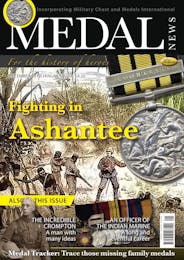
We must remember them too
BACK in the summer it was announced that there was to be a new “Office for Veterans’ Affairs” launched to provide lifelong support to military personnel.
That launch officially took place on October 16 when it was also announced that the new head of the OVA will be Col. David Richmond CBE, the most senior officer injured in the Afghanistan conflict and the former Recovery Director of Help for Heroes. Further details of what the office will do were also announced with its remit including:
· Pulling together all functions of government, and better co-ordinating charity sector provision, in order to ensure this nation’s life-long duty to those who have served.
· Ensuring that every single veteran and their family knows where to turn to access support when required.
· Helping to generate a “single view of the veteran” by making better use of data to understand veterans’ needs and where gaps in provision exist.
· Improving the perception of veterans.
That last one is interesting. What, one might ask is “the perception of veterans” and why does it need improving? As medal collectors we are, I hope, conscious of the fact that the medals we hold in our collections once belonged to real people, people with their own lives, their own stories to tell. We are delighted when we find out more about the serviceman or woman whose awards we now cherish and, perhaps, we might be guilty of romanticising them, forgetting that they were human, just as we are with all the frailties and faults that we all have. Over the years those who served our country have not been so romanticised by everyone, even the Duke of Wellington famously said of the men in his army that they were the “scum of the earth” (although he did go on to say “it is only wonderful that we should be able to make so much out of them afterward”). As a rule ordinary soldiers and sailors were not well loved by the general populace of Victorian Britain who saw them as rough and uncouth (as they generally were) and when then weren’t away fighting for Queen and Empire they were not necessarily well regarded; perhaps only when every family had a veteran in it after World War I did perceptions of those who had served begin to change. Today not every family will have a veteran still alive within it and whilst those who served in World War II are still held in high esteem by most, those who served in later conflicts are often overlooked, ignored or worse. It is an absolute tragedy that as we enter the second decade of the 21st century suicide rates amongst veterans and serving personnel are still at a ridiculous high (there are no official figures but the numbers coming out of charities are alarming, we know at least 71 veterans took their own lives last year) and homelessness, destitution and mental health problems are rife. One estimate puts the numbers in need of help as high as 66,000.
So, as we head towards Christmas, I am making a plea—whilst it is wonderful and rewarding to delve into the past, research our recipients and put “meat on the bones” of a simple trio or pair there are, right now, real live men and women who also deserve our attention, who need our help. So this year, if a friend or relative is stuck for something to give you for Christmas, why not suggest they make a donation in your name to a charity that helps our veterans? There are many out there—Combat Stress, SSAFA, Help for Heroes, the RAF Benevolent Fund, The Veterans Charity, Blesma and a host of others and all would welcome any amount big or small. Last month I wrote about remembrance and many of us stood in silence on November 11 to mark those who made the ultimate sacrifice. We would do well, this month, to remember those whose sacrifice is ongoing and do what we can to help. They deserve to be in our thoughts every bit as much as those who went before them.









